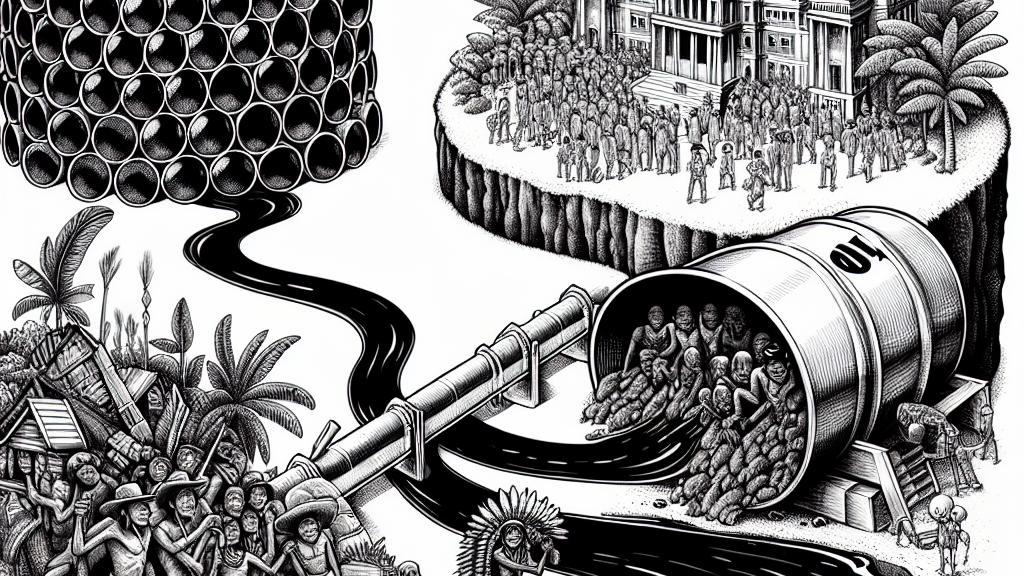The Flow of Oil Profits: Analyzing Ecuador's Economic Disparities
Overview
- Ecuador's economy is heavily dependent on oil exports, yet most profits are siphoned off to wealthier nations.
- The Amazon rainforest suffers extensive environmental damage, while local communities receive negligible financial benefit.
- Indigenous populations face significant disruptions to their culture and way of life due to oil extraction activities.

Ecuador's Oil Revenue Distribution
Ecuador, a vibrant country set in the heart of South America, relies significantly on its oil sector, exporting around 175 million barrels each year. This immense resource is not just a source of wealth; it forms the backbone of the national economy. However, a disconcerting study reveals that only a meager 21% of the profits from oil blocks in Yasuni National Park stay within the country. Instead, a staggering 79% of these profits flow to wealthier nations, particularly in the Global North. This glaring inequality represents an unbalanced distribution of economic gain and highlights a moral dilemma: while local communities like the Waorani endure the ecological fallout, they reap almost no financial reward from the oil extracted from their ancestral lands.
Environmental Impact on the Amazon
The environmental consequences of oil extraction in the Amazon are severe and far-reaching. It is reported that approximately 19% of the environmental damage directly impacts the Amazon rainforest itself. This statistic paints a striking picture of destruction: towering trees are felled, vibrant wildlife is displaced, and delicate ecosystems suffer from the relentless march of industry. Yasuni National Park, home to one of the most biodiverse areas on Earth, faces profound threats from oil drilling, which not only endangers countless species but also exacerbates climate change. For instance, studies indicate that habitat loss has led to the endangerment of unique wildlife such as the giant river otter and pink river dolphin. Hence, the critical need for sustainable practices and environmental protections becomes alarmingly clear, demanding global cooperation and action.
Cultural Consequences for Indigenous Communities
The effects of oil extraction extend deeply into the lives of Indigenous communities, altering their social fabric and cultural identity. Interviews with members of the Waorani tribe reveal a heartbreaking decline in their quality of life. These communities have thrived for generations, living sustainably in harmony with nature, yet the intrusion of oil companies threatens their very existence. Their age-old practices—such as traditional hunting and gathering—are increasingly challenged. Imagine a vibrant culture steeped in rich traditions and ecological knowledge being undermined by industrial greed. Moreover, social ties and communal customs face erosion as young people migrate to urban areas seeking work. It is critical to advocate for these communities and recognize the invaluable role they play in preserving both biodiversity and cultural heritage, ensuring that their voices are heard loud and clear amid the noise of exploitation.

Loading...